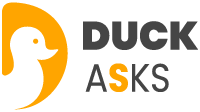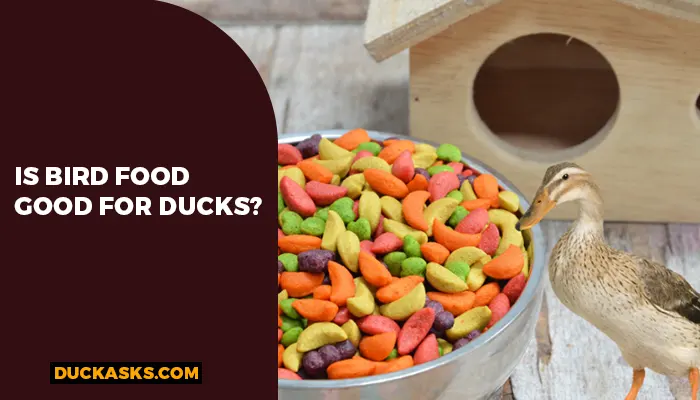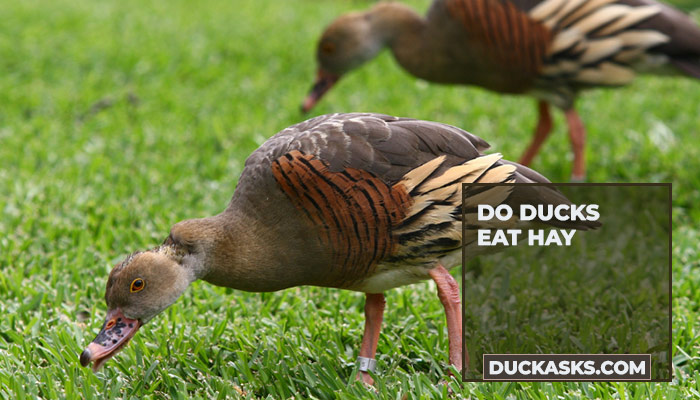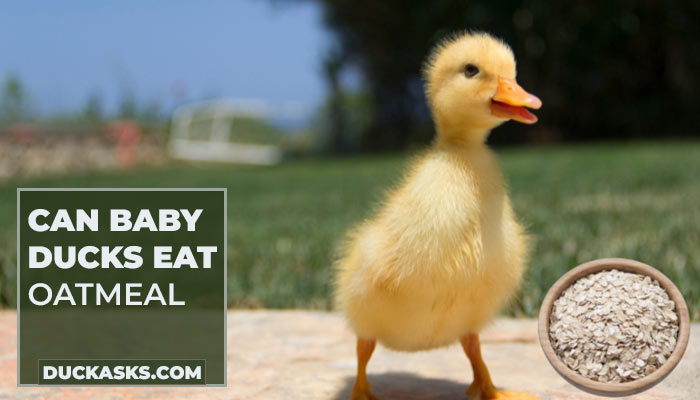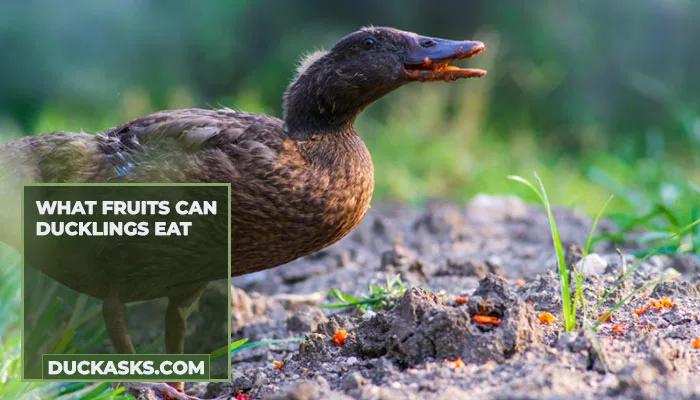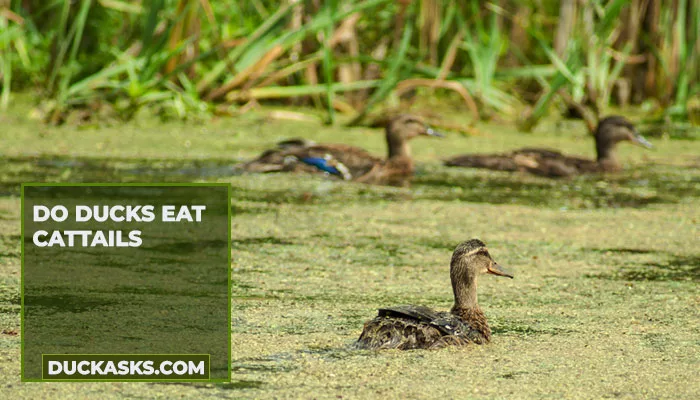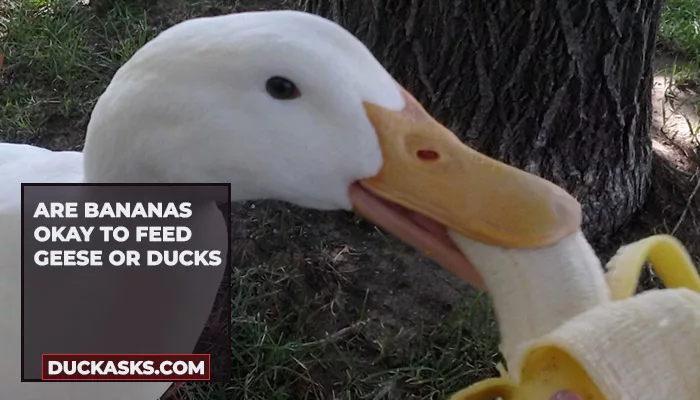What Can You Feed Wild Ducks?
If you’ve ever visited your local parks and lakes, you have most definitely seen people feeding ducks bread crumbs. I’m sure you have done the same.
However, if you honestly care about the health of said ducks, you should not be feeding them bread. This article answers the question, what can you feed wild ducks?
If you want what’s best for the ducks, you can feed them leafy greens, vegetables, seeds, or grains. However, even among these foods, there are certain varieties that are not recommended, and some are definitely better.
It should be noted that genetically, wild and domesticated ducks are closely related. As such, their nutritional needs and dietary restrictions are the same.
This article goes on to discuss what specifically are the best foods to give your local or migratory feathered friends and what you should avoid.
Read more about ducks food blog:
What Type of Food Do Wild Ducks Eat?
A duck’s diet will also rely on the ecosystem it lives in and the food that is available to it, even food intended for human consumption.
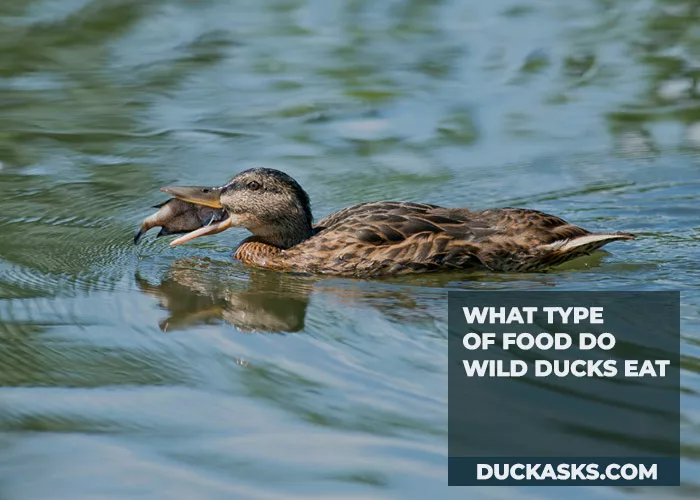
Ducks are omnivorous, which means they will consume both plants and animals in their diet. Out in the wild, a duck has a complex diet consisting of the following fauna and flora −
01. Vegetation
Throughout the year, a sizable portion of their diet consists of aquatic vegetation. Gadwalls and wigeons are two duck species that like the leafy portions of aquatic plants such as grasses, sedges, pondweed, and rushes.
Mallards, pintails, and teal ducks prefer the seeds of wetlands plants, while scaups and pochard ducks consume roots and tubers.
Many ducks eat grains, including rice, wheat, corn, and barley, throughout the winter, including mallards, wigeons, and pintails. Ducks also consume fruits like berries, buds, seeds, and flowers, and it is known that wood ducks consume acorns.
02. Invertebrates
Midges, horseflies, and beetles have all been found to be consumed by ducks. They are also known to eat aquatic insects, crabs, clams, and snails. It is known that some duck species, including the eider, eat mussels. Additionally, eiders eat crabs, first removing the legs and claws before gorging on the entire creature.
03. Fish
Fish is a common food for ducks, such as scoters and goldeneyes, but it often only makes up an insignificant part of their diet. Mergansers, also known as sawbills or fish ducks, are the only species that consume considerable quantities of fish.
These ducks have unique bills with serrations that have evolved to grab their prey. They consume a diverse variety of fish, including eels, sticklebacks, minnows, salmon, and trout.
04. Amphibians
The tufted duck and pochard are two duck species that are known to consume frogspawn and tadpoles. Since the majority of adult amphibian species are too large for their consumption, they resort to rating froglets and toadlets.
05. Reptiles and Snakes
Ducks will consume nearly everything, and this is not limited to vegetation and other smaller prey. They consume small reptiles such as lizards and salamanders. Many ducks will also consume snakes like garter, corn, and copperheads.
What Is the Most Nutritious Food to Feed Wild Ducks?
Although it may seem like common sense, most people are actually not aware of the fact that you shouldn’t give ducks processed foods meant for human consumption. Sure, they will gobble up those Pringles; however, they are not a healthy option.
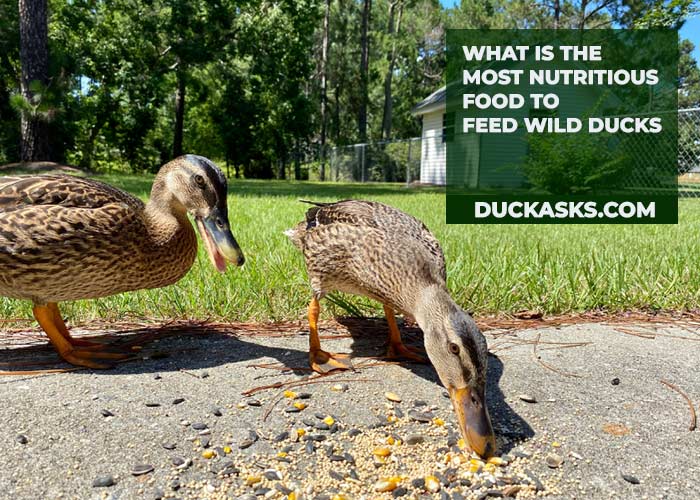
Some of the most nutritious foods you can give wild ducks are listed below.
01. Peas
Peas are a quick and simple alternative as well. If choosing a bag of frozen peas, make sure to thaw the vegetables first. Peas are a wonderful source of zinc, antioxidants like vitamin C and E, and other nutrients that support a healthy immune system. It also contains additional nutrients, like vitamins A and B.
02. Lettuce
A single head of lettuce is great for feeding ducks. Since the lettuce leaves may be split into tiny pieces, the ducks can readily trap and consume them. A safe substitution for lettuce would be spinach or kale, two green veggies.
Romaine lettuce contains 8 calories and 1 to 2 grams of carbs. Despite having a low fiber content, it contains a lot of minerals like calcium, phosphorus, magnesium, and potassium. It has little sodium by nature. Additionally, romaine lettuce is a rich source of folate, vitamin K, and C.
03. Cracked Corn
Cracked corn, which is made out of dried and broken corn kernels, is a simple food that is a favorite of ducks. Corn is a good carbohydrate-rich energy source.
A maize kernel has around 62% starch, 19% fiber, 4% oil, 15% water, and 19% protein in it. In poultry diets, starch serves as the main source of energy.
04. Instant Oats
Organic, raw oats are another simple treat for ducks. Pick plain oats that aren’t sweetened with sugar or other sweeteners, just like you would with veggies.
Another excellent substitute is rice. 1 cup of oats has 51 grams of carbohydrates, 13 grams of protein, 5 grams of fat, and 8 grams of fiber.
05. Seeds
Duck-friendly seeds are a great choice. These nutrient-dense recipes, despite the additional cost, were made especially for wild ducks and hence pose no risk of injury.
Fiber is abundant in seeds. They also include beneficial monounsaturated and polyunsaturated fats, as well as numerous vitamins, minerals, and antioxidants.
06. Pellets
When it comes to foods that are designed to mimic a duck’s natural diet, pellets are yet another excellent option.
Depending on the kind of ducks you intend to feed, you may buy them in a variety of sizes and numbers, and they are not too expensive. Pellets are known to be an all encompassing food source for poultry in general.
What Foods Should You Avoid Feeding Wild Duck?
As you can see from the list below, these processed foods should be avoided at all costs. Although these won’t kill the ducks, they provide no nutrients to the ducks and just fill up their tiny stomachs.
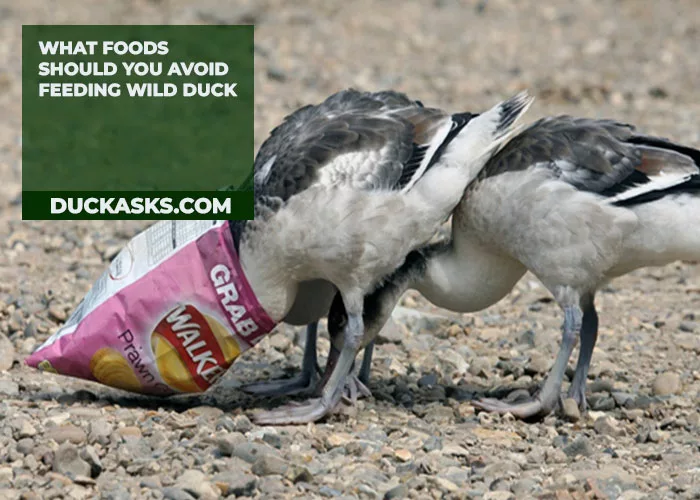
Over time, this will have serious consequences on the duck’s health should they only consume these foods, just like us. The following foods should be avoided if you want to feed your favorite ducks −
- Bread
- Crackers
- Potato chips
- Popcorn
- Cereal
- Pastries or baked goods
Why Should You Not Feed Wild Ducks?
Upon much research, I have seen that many experts suggest that we should not actually be feeding ducks. It is quite noble of us to help feed our feathered friends; however, once it becomes the hobby of the whole town, it leads to many unintended consequences.

Although there are many, in this article, we will concentrate on two.
01. Nutritional Issues
Most people don’t know what to feed ducks, and as such, they load these birds up with corn and other processed foods.
Eventually, some of these birds become sick, have drooping wings, and are unable to fly. They also develop something called Metabolic Bone Disease (MBD), which leads to, among other conditions, painful beak, bone, and claw issues.
02. Disease
When people feed ducks in an area, they create an artificial feeding site. When ducks swarm up in these areas to eat, they are also defecating in the same place.
This creates an unsanitary environment for the ducks and the people of that area. Moreover, it is known that when wild ducks are concentrated in a small area, it generally leads to the spread of diseases.
Here is a list of such instances that took place −
- 2000 mallards died due to the spread of a virus called Enteritis in Central New York.
- In Skaneateles, New York, swimmers contracted Swimmer’s Itch, caused by a parasite that was emitted from ducks.
- When food is dispersed too generously, Aspergillus, another deadly illness, develops. It accumulates and starts to mold.
- A feeding facility in Cheektowaga, New York, saw an outbreak of Avian Botulism that resulted in the death of hundreds of ducks.
Final Words
Overall, we can surmise that if you do have to feed wild ducks, or any other wild birds for that matter, you should first do the research.
One should not be ignorant of the needs and wants of these birds, and since we have a responsibility to nature in general, we should only feed our wild friends what is best for them.
Did this article tickle your intellectual needs? If yes, then go visit our socials for more. If not, then go visit our Facebook, Twitter, and Pinterest to satisfy your thirst for answers. Please share this article if you enjoyed reading it.
Article References:
Image Credits:
